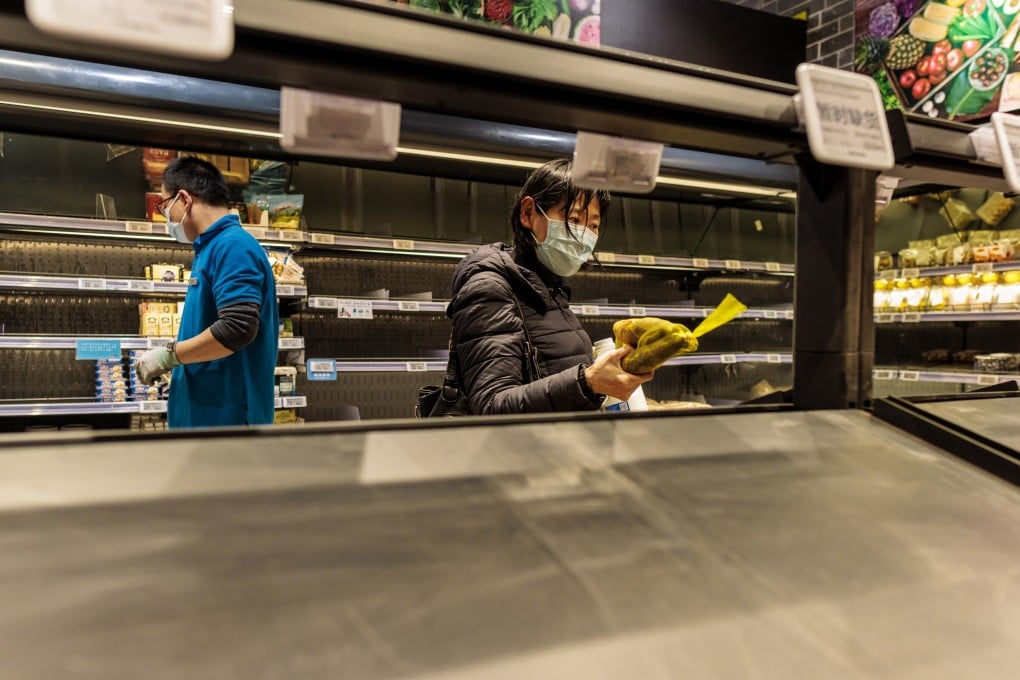Shanghai lockdown sparks panic buying across the city as residents race to stock up on food and supplies
- Pudong, east of the Huangpu River the cuts Shanghai into two, is already on lockdown from Monday through Friday
- Puxi, west of the river, will be sealed off from April 1 through 5 for health officials to test the local population

Shanghai’s residents raced to stock up on food and essentials in bouts of panic buying after local authorities of one of China’s most densely populated urban centres made an unexpected U-turn on what had been a relatively liberal approach in containing the Covid-19 outbreak.
Restaurants, supermarkets and grocery stores were packed in Puxi, as surprised residents jostled to buy fresh and frozen food in preparation for a lockdown in the residential districts west of the Huangpu River to start on Friday until April 5.
Districts of Pudong east of the river - Fengxian, Jinshang, Chongming and part of Minhang - have already been sealed off since Monday,, in an exercise lasting through Friday for health officials to conduct mass testing to identify the transmission chain and snuff out the disease.
“The supermarket only has a few types of vegetables and meat,” said Ren Xiaowen, a 43-year-old resident who spent half an hour in the shopping mayhem, only to return with beef, a few green vegetables and tomatoes to last her family for a week. “Everyone is behaving like robbers.”

The sudden lockdowns, albeit in two phases, came as the number of infections soared in the city of 25 million residents, with more people falling victim to the highly transmissible Omicron variant in the four weeks of March than the two years since Covid-19 broke out.